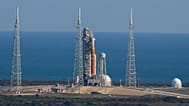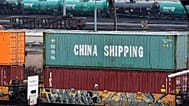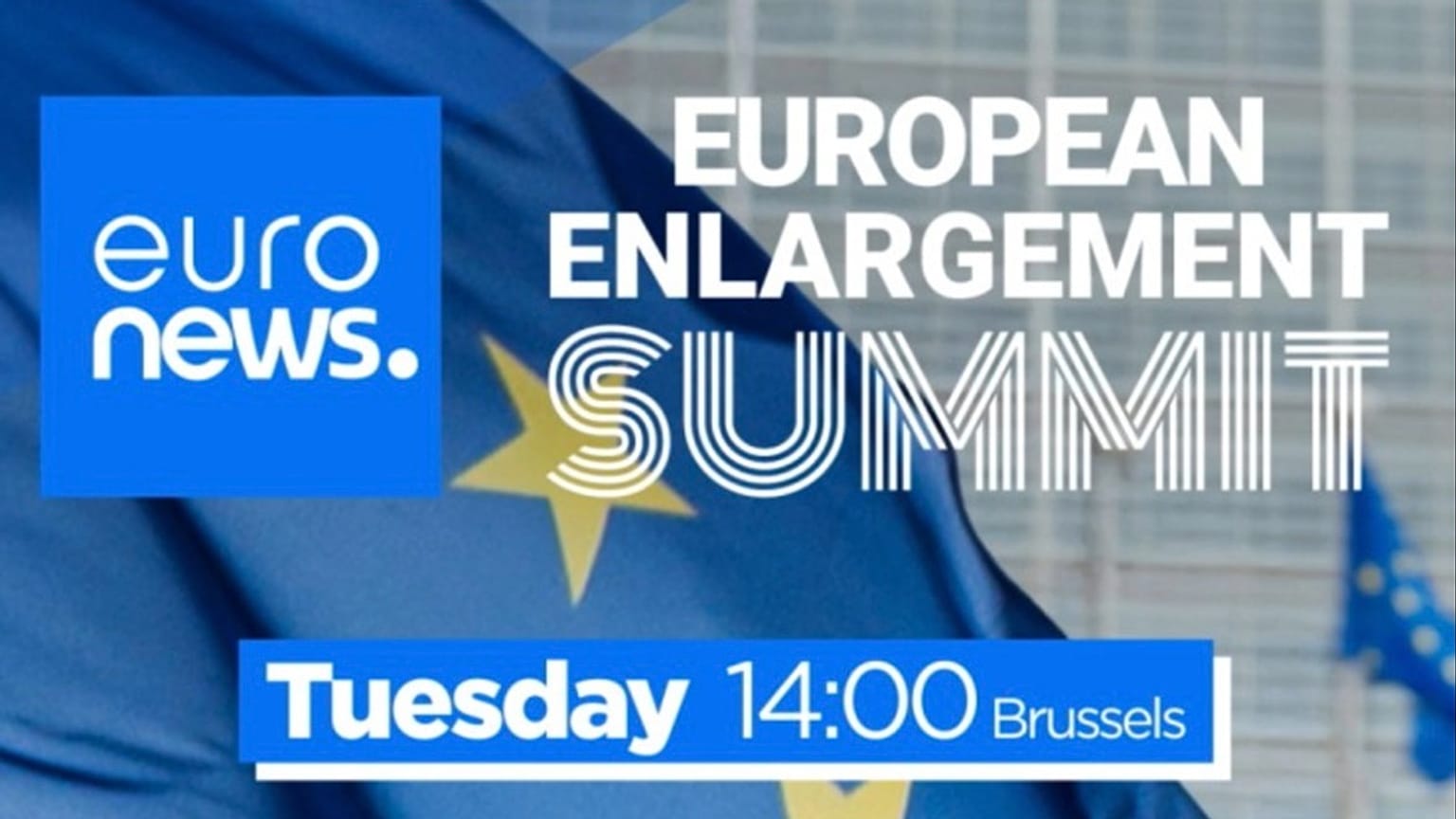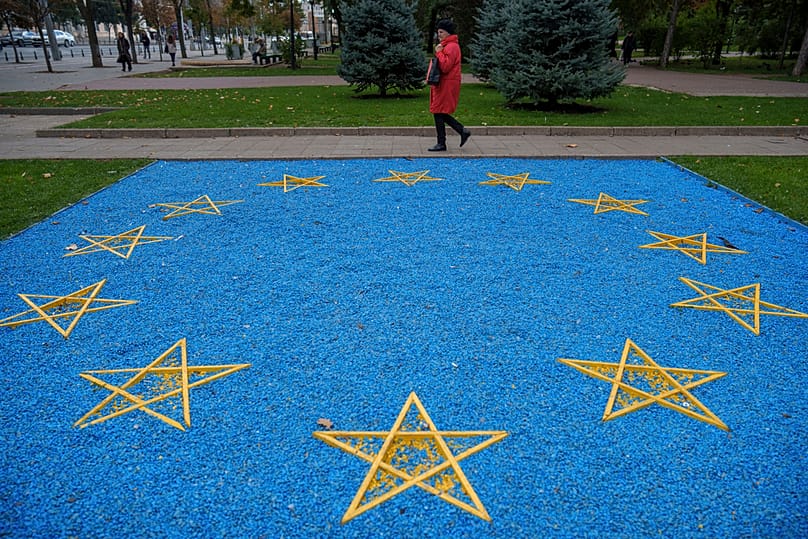Key EU decision-makers join leaders from Ukraine, Moldova, Serbia, Albania, Montenegro and North Macedonia as Euronews hosts one-of-a-kind, televised EU enlargement summit in Brussels, to kick off at 2 pm.
All is set on the day of Euronews' Enlargement Summit, the first-of-its-kind televised live event bringing together EU and candidate country leaders for groundbreaking conversations on the future of European integration.
The unprecedented summit, taking place on Tuesday, 4 November in Brussels, will mark a defining moment for EU enlargement policy in the heart of Europe, as the continent's political heavyweights gather to discuss the 27-member bloc's expansion towards the east and southeast.
European Council President António Costa has confirmed his participation, joining a remarkable assembly of leaders set to define the future of European enlargement.
The summit will bring together Ukrainian President Volodymyr Zelenskyy, his counterparts from Moldova and Serbia — Maia Sandu and Aleksandar Vučić — and three prime ministers representing the Western Balkans: Albania's Edi Rama, Montenegro's Milojko Spajić, and North Macedonia's Hristijan Mickoski, as well as European Commissioner for Enlargement, Marta Kos.
The gathering represents Euronews' initiative to amplify the voices of candidate countries at a moment when European Commission President Ursula von der Leyen has rebooted the process, rebranding enlargement as "reunification of Europe".
The summit will provide a first-of-its-kind platform for candidate country leaders to voice their own perspectives on the enlargement journey, from Ukraine and Moldova's determination amid ongoing war in Ukraine to the Western Balkans' decades-long wait for membership, each leader bringing their own insights into how enlargement is perceived from their nation's standpoint and what the road ahead will bring.
The enlargement process is not an abstract matter, and the path affects millions of Europeans, which is why through their perspectives leaders will also bring their nations' hopes and dreams and their people's voices into the debate.
What are the challenges faced by summit's participants?
Following Russia's all-out war in Ukraine and facing fast-paced geopolitical shifts, Brussels has injected fresh momentum into enlargement discussions, seeing the process as key for Europe's security, economic strength and democratic values.
Yet for each EU hopeful, the path has come with different challenges: Ukraine applied for membership just four days after Russia's full-scale invasion in February 2022 and achieved candidate status in an unprecedented four months, while the country continues to face the challenge of conducting EU reforms while defending against Moscow's aggression.
Moldova followed Ukraine's lead, applying one week later in March 2022 and receiving candidate status simultaneously. The European Commission expects Moldova to complete negotiations by 2027, moving "perhaps twice as fast" as typical candidates.
President Maia Sandu has championed her country's EU path despite Russian hybrid interference, including attempts to manipulate recent elections and constitutional referendums.
Serbia has been negotiating since 2014 after applying in 2009, but has faced a drop in public support from over 70% in the early 2000s to around 40% today. However, both Belgrade and Brussels have reiterated that Serbia's place is in the bloc.
Albanian Prime Minister Edi Rama, who declared in September that "for the first time in history we can choose freely which empire we want to be part of ... the empire of rights, values, safety and security," has seen remarkable progress in recent times following its membership application in 2009, and is now one of the frontrunners, officially aiming to join by 2030.
Montenegro leads all candidates with all 33 chapters opened and seven provisionally closed since beginning negotiations in 2012. Prime Minister Spajić's government aims to complete negotiations by 2026 and achieve EU membership by 2028.
North Macedonia has waited the longest of all, applying in 2004 but then faced successive obstacles due to neighbourly disputes. After resolving the name issue with Greece through the 2019 Prespa Agreement, Bulgaria blocked negotiations over the recognition of its minority, language and interpretation of joint history — a major obstacle yet to be overcome as public support for joining the EU also waned.
Euronews' summit to provide key to Europe's future
The timing of Euronews' summit coincides with the European Commission's presentation of its 2025 enlargement package — an annual assessment of candidate countries' progress that will set the tone for the year ahead.
The event also comes at a time when most Europeans are in favour of the 27-member bloc's expansion: a recent Eurobarometer poll shows 56% of EU citizens support enlargement, with particularly strong backing from younger Europeans.
The summit will explore the benefits of EU expansion: accessing new markets of millions of consumers, globally extending the EU's political influence and strengthening democracy and European values across the continent.
What sets Euronews' summit apart is its commitment to face-to-face dialogue between candidate country leaders and EU decision-makers.
The televised format will allow all Europeans everywhere to witness a direct and frank discussion of enlargement challenges, expectations and opportunities.
Euronews will broadcast its European Enlargement Summit live across its television and digital platforms, including YouTube, from 2 pm to 5 pm CET on Tuesday, 4 November.
















